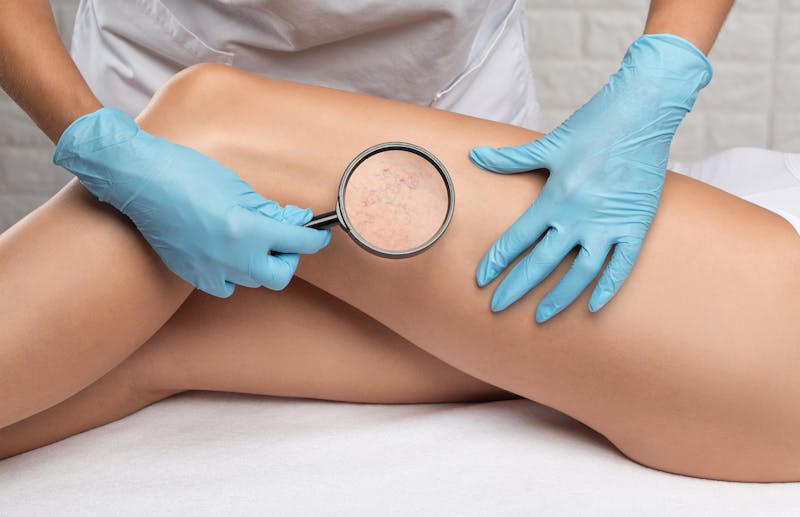
Ulcers are sores that are slow to heal or keep returning. Injuries, diseases, and infections can cause them, and what they look like depends on their location. Leg and foot ulcers generally manifest from a wound that doesn’t heal well due to another health issue, such as a blood flow problem.
There are different types of ulcers, and while some go away independently, others cause severe problems if left untreated.
Diabetic Ulcers
Diabetic ulcers are open sores on the skin that heal slowly and increase your risk of infection. Additionally, they can cause gangrene, a dangerous condition that causes the surrounding tissue to die and potentially become fatal. Diabetic ulcers often form on your legs, feet, and toes but can also manifest on your hands or stomach in several stages.
When you have diabetes, these ulcers can cause your blood sugar levels to spike, damaging your nerves and veins. Over time, this prevents blood flow from reaching your extremities, making it harder for wounds to heal.
Suppose your doctor thinks there is another underlying health problem when diagnosing diabetic ulcers. In that case, the Wound Evolution - Wound Care and Hyperbaric Medicine team might order blood tests or diagnostic imaging to closely examine the bones, joints, and soft tissue in your feet and ankles.
Pressure Ulcers
Pressure ulcers, or bedsores, are caused by prolonged pressure that affects the skin and underlying tissues. They are most often found on skin that covers more bony areas of the body, including the:
- Heels
- Ankles
- Hips
- Tailbone
When there is pressure, blood flow to the tissue is reduced. Blood flow delivers oxygen and nutrients to the tissue. Without these, the skin and surrounding tissues become damaged and can die.
Pressure ulcers are usually found in those with limited mobility who cannot frequently change their position, often caused by a medical condition that requires them to spend most of their time in bed or a chair. As such, when you visit Wound Evolution for a pressure ulcer, your provider may be able to make a diagnosis based on the appearance of the sore and information about your lifestyle. Blood tests may sometimes be required to assess your overall health better.
Arterial Ulcers
An arterial ulcer forms when plaque that hardens the arteries develops in your leg and blocks blood flow. Skin and other tissue are deprived of oxygen and nutrients, so the tissue dies, and an ulcer develops.
The lack of blood also makes it harder for wounds to heal. If you have problems with your arteries, such as plaque buildup, you may get arterial ulcers on your feet and toes.
Venous Leg Ulcers
Venous ulcers are complicated to heal, with half of all cases remaining open and unhealed for nine months or longer. They are especially dangerous because they do not heal independently and do not respond well to over-the-counter treatment.
A venous ulcer develops when one-way valves in the leg vein stop functioning and allow blood to flow backward. As blood accumulates in the vein, the pressure inside the vein increases, which pushes fluids out of the vein, breaking down the skin and causing a venous ulcer.
You’re more like to get venous ulcers if you have:
- A history of blood clots in your legs
- Prior leg swelling
- Limited mobility
- Osteoarthritis
- Varicose veins
The ulcer gets progressively larger and, without treatment, is prone to an infection that can spread and produce severe skin or bone infections.
Wound Evolution Treats Different Types of Ulcers
The Wound Evolution - Wound Care and Hyperbaric Medicine team offers holistic care for many different types of ulcers. Our highly-trained staff can evaluate your diet and ensure you get the extra nutrition needed to support healing and teach you how to take care of your ulcer at home. This includes showing you how to clean the wound, protect the healthy skin around the edges of the ulcer, and change any dressing.
If you develop a venous leg ulcer or any other type of ulcer, call Wound Evolution - Wound Care and Hyperbaric Medicine or book an appointment online today.

